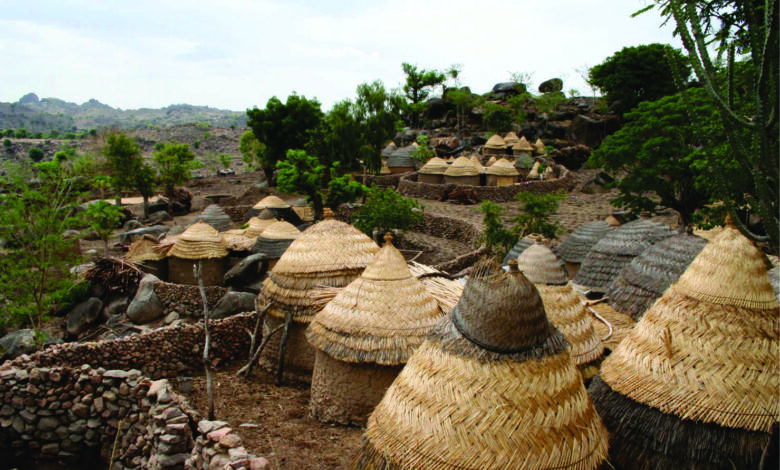Nigeria’s Cultural Heritage Sites

Nigeria, with its rich tapestry of cultures and traditions, is home to a myriad of cultural heritage sites that reflect its diverse history and heritage. From ancient kingdoms to colonial-era landmarks, these sites offer a glimpse into the country’s past and present.
1. Sukur Cultural Landscape
Located in the northeastern part of Nigeria, the Sukur Cultural Landscape is renowned for its ancient terraced fields, traditional architecture, and complex social organization. Recognized by UNESCO as a World Heritage Site, Sukur is notable for its historical significance and the continuity of its cultural practices. The site includes the Sukur Palace, which serves as a symbol of the Hidi’s authority, and the surrounding landscape featuring intricate farming systems.
2. Ogbunike Caves
The Ogbunike Caves, situated in Anambra State, are a network of caves with historical and spiritual significance. They have been used for centuries by local communities for religious rituals and ceremonies. The caves, set in a lush forested area, are also known for their unique stalactite and stalagmite formations. They have been a site of pilgrimage for the Igbo people and are considered sacred.
3. The Aso Rock
Aso Rock, located in Abuja, is a prominent natural landmark and a symbol of Nigeria’s capital city. This large monolith rises 400 meters above its surroundings and serves as a backdrop to the Nigerian Presidential Complex, National Assembly, and the Supreme Court. It is an iconic feature of the city and represents the nation’s political and administrative heart.
4. The Benin City Walls and Moat
The ancient city of Benin, in Edo State, was once enclosed by one of the most impressive city walls and moats in the world. Although parts of the original walls have been eroded over time, the remnants of this grand defensive system are a testament to the ingenuity and advanced engineering skills of the Benin Kingdom. The walls and moat played a crucial role in the city’s defense and remain a symbol of the kingdom’s historical power.
5. Olumo Rock
Olumo Rock, located in Abeokuta, Ogun State, is a massive outcrop of granite rock. It is not only a natural wonder but also a historical site, as it was used as a fortress by the Egba people during inter-tribal wars in the 19th century. The rock offers panoramic views of the city and holds cultural significance for the local population, featuring ancient shrines and traditional carvings.
6. Yankari National Park
While primarily known for its wildlife, Yankari National Park in Bauchi State also holds cultural significance due to its ancient rock paintings and archaeological sites. The park is home to the Wikki Warm Springs, a natural hot spring with therapeutic properties. The area has been inhabited for centuries, and the rock paintings provide insight into the early human settlements in the region.
7. Kano City Walls
The historic city walls of Kano, built in the 14th century, represent one of the most formidable city defenses in West Africa. The walls enclosed the ancient city of Kano and are a reminder of the city’s significance as a major trade and cultural center in the Sahel region. The remnants of these walls, along with various gates and towers, reflect the architectural prowess of the time.
These cultural heritage sites are not only valuable for their historical and architectural significance but also for their role in preserving and celebrating Nigeria’s diverse cultural heritage. They offer opportunities for education, tourism, and a deeper understanding of the nation’s past and present.




